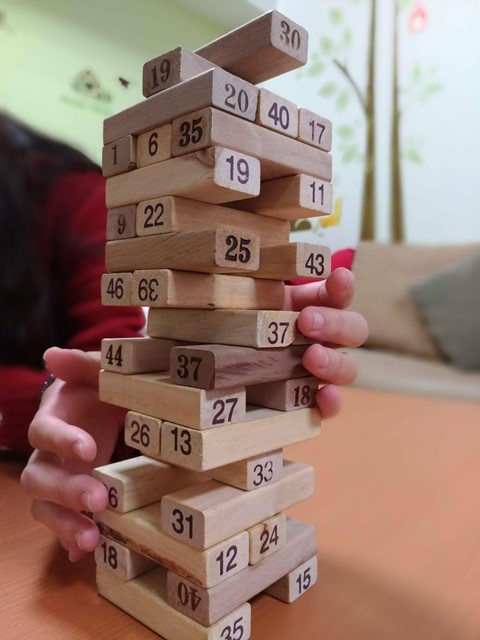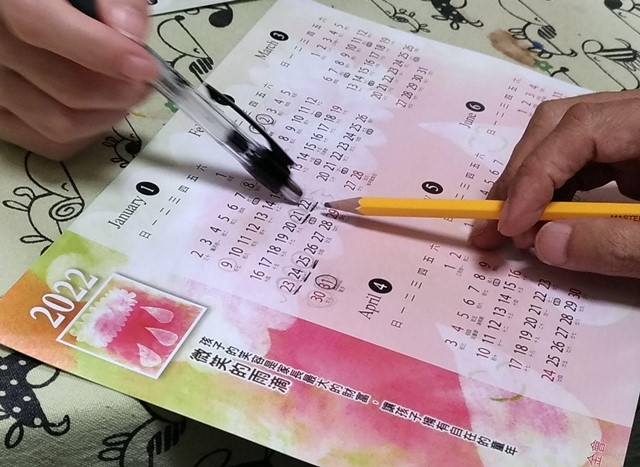In 2021, we saw several celebrity divorces that show that the real family life behind the screen is often invisible to outsiders.
The high divorce rate in Taiwan is not news anymore. According to the Ministry of the Interior, the estimated divorce rate is just over 0.2 percent every year. Ranking first in Asia in 2020.
About 50,000 couples are divorcing each year. However, it is easy to overlook the background story by looking at these statistics.
Divorce is not what you thought it would be
In Taiwan, there are two main ways to divorce: either they reach an agreement or sue for divorce. Many people choose to Sue for divorce because they can’t communicate or don’t want to communicate with each other. Through legal channels, they hope to throw the dispute to the judge to make a decision. Even though it could be the fastest way, the actual problem will not be solved.
The author works in the “family service center” of the court in Taiwan. On the divorce petition, it can be seen that the disputes of each family look very similar from the legal level, which contains:
- Elimination of the relationship between the two parties.
- Distribution of the residual property after marriage,
- Reparation for damages,
- Exercise of guardianship of minor children
- Child support for the children,
These legal terms, simply put, are two things: rob money, rob people.
When the promise of a happy life seems to be lost, the relationship turns into a vicious one, especially when the two sides start going to court, trying to win the war of money and people, which makes the relationship even worse. Many parents are so focused on winning their cases that they make their own lives very miserable. Intentionally or unintentionally, they put all kinds of pressure on their children, which leads to all kinds of maladjustment of their children.
We sometimes ask parents who come to court: “If you were to get a ruling in favor of the court tomorrow, would your relationship with your child immediately change?”
This question goes back to an important premise, which is that family cases are very different from civil and criminal cases because there is a strong emotional connection between the two parties. The damage caused by the breaking of this link does not end with the decision, so family cases are not only legal issues but also emotional and human issues.
Therefore, the “Family Act” provides for the “Mediation First” structure, that is, the court appeal for divorce must first go through the mediation process so that the two sides have room to communicate and turn around. However, those who will file lawsuits are often not the ones who have tried to solve the problem through communication. Instead, they have become disappointed and come to court because they believe that communication is ineffective. They expect the judge to decide with their gavel, but they do not expect that entering the court is another beginning. In my experience, there have been lawsuit after lawsuit, sometimes for more than a decade.
In the author’s opinion, the biggest reason behind the problem, and also the most difficult part, is that the trust relationship between the two parties has been broken. Even if one side is willing to offer the olive branch first, the other side will often treat it with suspicion, or even interpret it from a negative perspective. Suspecting what intentions does the other side have?
How to build Trust relationship with Divorced Parents?
Some sociologists point out that trust is a kind of “social capital”. We must trust each other to maintain the operation of the whole society. Trust is also the degree of willingness to take risks. Every trust often comes with unexpected losses. After all, even if the other party is not malicious, it might cause us disappointment due to the conflict of interest.
Trust can be divided into two levels: “cognitive trust” and “emotional trust”. Cognitive trust is the idea that we classify people as trustworthy, untrustworthy, or undecided, meaning that someone has to “give me a good reason” to trust them. And whether to choose to trust the other party, behind the consideration of a lot of factors, including the ability of the other party, goodwill, honesty, and their interests and mine and so on.
However, these factors could not constitute a trust. To trust is to take a risk, that is, to make a “leap of faith” beyond expectations, which requires an investment of emotional trust. In other words, you need to feel genuine and emotionally relieved to truly trust someone.
Part of the reason divorced couples are less likely to trust each other, on the cognitive trust level, is because they think they know each other most. A lot of people say, “He’s putting on a show for you guys.” “I’ve been married to him for a long time. I know what he’s thinking.” But such thinking sometimes comes from stereotypes and ignores the fact that there are always exceptions and problems that are not black and white.
On the other hand, the emotional tear between each other will also make both sides believe that the other does not have good intentions, especially when one side is betrayed. With this kind of strong painful emotion, it’s even harder for people to make a rational judgment. After all, how can we trust the people who have hurt us? Relationships come from interaction, “I’ll treat you the same way you treat me,” and the result is constant hurting of each other, of the children, and each other’s family and friends.
 |
I like to use Jenga as a metaphor for the trusting relationship between divorced couples, where each positive attitude, behavior, and response is like a building block that is put in place to keep the Jenga from collapsing. However, the accumulated effort could be toppled by a mistake, which causes the collapse of trust, and there is a feeling that all the previous achievements have been wasted.
To prevent the trust relationship from collapsing again, we can support it with external forces, such as social workers, the care of relatives and friends, or the power of the court, like holding Jenga by the hand. The most common example of this is the “meeting of a minor child”, where the parties cannot trust each other and the court steps in to regulate the time and place of the meeting or arranges for the meeting to be carried out by a social worker.
However, these practices lead both parties to believe that “the other party will only abide by the agreement if the court requires it,” which does not lead to lasting trust between the two parties, and may even limit the development of trust for fear that it will collapse if the court takes its hand back.
Here’s a question to ponder: Why do we keep playing Jenga when it collapses? Some may do it for fun, others for the challenge of going higher, but for divorced parents, the motivation to move on must be to find common ground. |
The common interest of divorced parents is the physical and mental health of their children
In divorce cases, almost all the parties’ interests conflict with each other. In terms of residual property, every dollar you get is a dollar less for me. However, there is one thing both sides can benefit from, and that is the healthy development of the child.
The people who handle family cases in court all want the same thing: for parents to shift the focus from their wins and losses to what is best for their children, and to think truly “from the child’s perspective.”

A lot of parents will tell me that divorce is our adult business, and I don’t want to hurt the children. But the child is part of the family and it is impossible not to be affected, and even the child may want to play the role of intermediary in the divorce conflict between the parents. After all, a child’s greatest hope is often that both parents can be happy. And so, the version of the story that we hear in the courts often ends up with parents and children, all of whom are having a hard time with each other, with children caught in the middle, pleasing one side, hating the other, being used as mouthpieces and punching bags, and similar stories are repeated in the courts.
For the sake of their children, even if trust collapses again because of a mistake, I would advise divorcing parents to continue to pick up the building blocks of goodwill and start again, piece by piece, putting them in the right place. It’s never too late to start. The building blocks of goodwill, to name a few, include not arguing in front of children, supporting children to see each other naturally, not bad-mouthing each other in front of children, avoiding endless lawsuits, and so on.
Community family counseling. What can we do?
To reduce the possible harm caused by divorce to minor children, the Ministry of Health and Welfare has begun to promote the “community-based family mediation service” in recent years. The vulnerable families concerned by social welfare service centers are first served. Professionals with social work or counseling backgrounds, practical negotiation experience, or mediation training assist the two parties to reach an agreement as a neutral third party. Instructing parents to handle divorce or minor child custody disputes “with the child’s interests in mind.”
Many parents have doubts and concerns about entering the mediation, as past interactions may not have been that good, and it is hard to believe that the other party will follow through. However, without discussion and mediation, the dispute will never be resolved. Therefore, we still encourage both parties to communicate through a professional third person, starting from the relatively easy issues. Professional mediators will also help both parties to build up the trust relationship piece by piece through emotional support. It is hoped that divorced parents will work together for the common good of both, that is the physical and mental health of their children.

